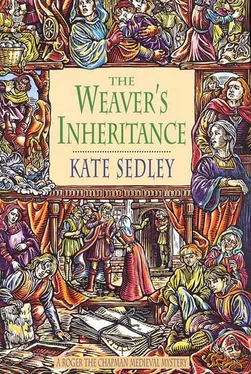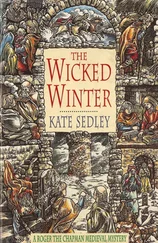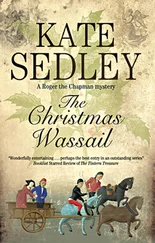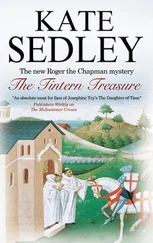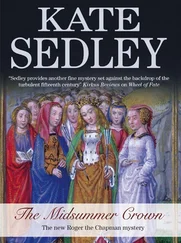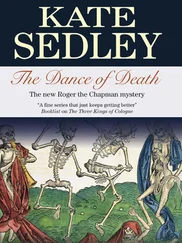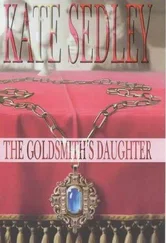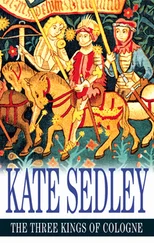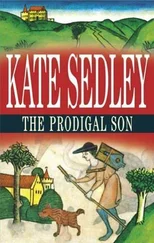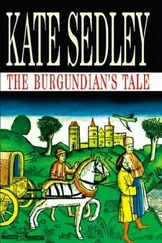Kate Sedley - The Weaver's inheritance
Здесь есть возможность читать онлайн «Kate Sedley - The Weaver's inheritance» весь текст электронной книги совершенно бесплатно (целиком полную версию без сокращений). В некоторых случаях можно слушать аудио, скачать через торрент в формате fb2 и присутствует краткое содержание. Жанр: Исторический детектив, на английском языке. Описание произведения, (предисловие) а так же отзывы посетителей доступны на портале библиотеки ЛибКат.
- Название:The Weaver's inheritance
- Автор:
- Жанр:
- Год:неизвестен
- ISBN:нет данных
- Рейтинг книги:4 / 5. Голосов: 1
-
Избранное:Добавить в избранное
- Отзывы:
-
Ваша оценка:
- 80
- 1
- 2
- 3
- 4
- 5
The Weaver's inheritance: краткое содержание, описание и аннотация
Предлагаем к чтению аннотацию, описание, краткое содержание или предисловие (зависит от того, что написал сам автор книги «The Weaver's inheritance»). Если вы не нашли необходимую информацию о книге — напишите в комментариях, мы постараемся отыскать её.
The Weaver's inheritance — читать онлайн бесплатно полную книгу (весь текст) целиком
Ниже представлен текст книги, разбитый по страницам. Система сохранения места последней прочитанной страницы, позволяет с удобством читать онлайн бесплатно книгу «The Weaver's inheritance», без необходимости каждый раз заново искать на чём Вы остановились. Поставьте закладку, и сможете в любой момент перейти на страницу, на которой закончили чтение.
Интервал:
Закладка:
Chapter Fifteen
I have mentioned on at least two previous occasions in this narrative, the fact that throughout this strange case of Clement Weaver I was destined to be an observer of great events, simply because God decreed that I should be in the right place at the right moment. And so it was that during the last week of May, a few days after the execution of Thomas Burdet, I was passing through the city of Westminster when Clarence stormed his way into the palace council chamber to protest his henchman’s innocence.
I had taken almost a month over the journey to London, not hurrying, going out of my way to visit the remoter communities of Wiltshire and Berkshire and the city approaches, allowing the quiet of the countryside to act as balm to my bruised and battered spirit. I had set out from Lawford’s Gate still convinced of my undying passion for Rowena Honeyman, only to discover that by the time I reached the scattered hamlets and holdings of Savernake Forest, a whole day would go by without my once conjuring up her face. Indeed, as the fitful showers of early May gave way to more smiling weather, and as the white stars of the campion flowers began to displace primroses and sweet wild violets, I found that I might not think of her for several days together, until something happened to jog my memory. And even then, the sadness and regret did not last beyond an hour or two.
There was so much to be observed, and occasionally to be done when my services could be of any use, that I had little spare time for repining. May is the month for rethatching roofs after the depredations of winter, when torn and loosened straw must be flattened down and stitched into place; for threshing grain when the weather is kind; for planting peas and weeding autumn-sown corn; for draining grassland. It is also the season for the start of the summer activities.
On Whit Sunday, after Mass, I clapped and cheered the Morris dancers on the green of some village whose name I have long since forgotten, although I shall never forget the mouthwatering taste of the Whitsun cheesecake given to me by one of the local Goodies. The pastry which encased it was light as thistledown, while the flavours of clove and mace were so skilfully blended with the curds and egg yolks that there was no bitterness or stinging of the tongue. And when I fell asleep that night, beside that same Goody’s damped-down fire, I was undisturbed by dreams of a little, straight nose, periwinkle-blue eyes and a small, determined chin, all in a frame of silky fair hair. The following morning I awoke refreshed, and, if not entirely carefree, then certainly without that weight of misery that I had carried with me for so many miles at the beginning of my journey.
I was even prepared, when at last I reached it, to look with a tolerant eye upon the city of Westminster with its teeming streets full of aggressive Flemish merchants, not so much trying to sell their wares as to force them at knife-point on innocent passersby. Lawyers, in their long striped gowns, and Sergeants-at-arms, in their silken hoods, strutted in and out of Westminster Hall with as much pomp and inconvenience to other people as they could possibly manage. Furthermore, the city, then as now, has always been a hotbed of thieves and pickpockets who can be out by the gate and halfway along the Strand towards London before their victims realize that anything is missing.
That particular morning, I pushed my way through the crowds, brandishing my cudgel as a warning, letting everyone know that I should defend myself if the need arose. The pack on my back also served as a handy weapon, for although it was not so heavy as when I first left Bristol, it was still weighty enough to give any rogue a hefty blow to arm or face if I swung my body in his direction. Coupled with my girth and height, this proved to be deterrent enough, and I was untroubled even by those most determined of cutpurses who operate the stretch of ground between the waterfront and the Abbey.
As I headed towards one of the many cookshops, their goods displayed enticingly on trestle tables set up in front of their booths, I recalled the last time I was in Westminster, two years previously, when, on the eve of the English invasion of France, I had seen the Duke of Gloucester, at the head of his retinue, ride by on his way to London. The thought was barely formed, before I and my fellow citizens found ourselves being unceremoniously pushed to one side in order to make room for another lordly procession, this time entering, not leaving, Westminster, its banners and pennons all bearing the insignia of the Duke of Clarence. The Duke himself led the cavalcade, his handsome, florid face contorted with an anger that was akin to hatred. In front of Westminster Hall, he reined in with a violence which must have torn at the delicate skin of his horse’s mouth, and almost threw himself from the saddle, beckoning furiously to a man who rode just behind him. A palace official tried to bar his way, but was thrust roughly from his path.
‘I must and will see my brother!’ declared the Duke, his voice carrying clearly to our straining ears.
‘His Highness has left for Windsor,’ spluttered the outraged steward, still valiantly trying to prevent Clarence’s entry.
‘But the Council is still in session?’
‘It is.’ The affirmation was reluctant. ‘But I have no authority to admit Your Grace.’
The Duke, however, balked of his chief prey, was in no mood to give in gracefully. ‘I don’t give a toss for your authority,’ he snarled. ‘Where are they sitting? Upstairs?’ He addressed the hang-dog man at his elbow. ‘Doctor, stay close and follow me.’
The palace official made one last attempt to halt this uninvited guest, but was immediately pinned back against the open door by two of Clarence’s bravos, two whose faces I swore I could remember from the arrest of Ankaret Twynyho.
I turned to my neighbour who, judging by his bloodied apron and the cleaver fastened to his belt, was a butcher delivering meat to the pie-shops. ‘What’s it all about?’ I asked him.
He shrugged. ‘I don’t know any more than you, friend, but I suspect it’s to do with that man of the Duke’s who was hanged on a charge of trying to procure the King’s death by necromancy. I was told that before his execution, he read out a long statement on the scaffold, passionately protesting his innocence.’
‘No doubt like the Widow Twynyho,’ I commented bitterly.
‘Who?’ My companion was nonplussed. I explained and the butcher sighed. ‘There’s bad blood between those two brothers, no doubt about it. Small wonder really, when you consider how King Edward’s had to put up with the Duke’s carryings-on for all these years.’
‘Who’s the man with him, the one he called Doctor?’ I wanted to know.
Neither the butcher nor anyone else in the immediate vicinity could enlighten me, but an elderly woman, standing just within earshot, said that he was that same Doctor Goddard who had proclaimed the late King Henry’s right and title to the crown seven years earlier. ‘You know! When the Duke of Clarence and the Earl of Warwick tried to oust King Edward and put King Henry back on the throne.’
This was disturbing news if Clarence were indeed stirring up old treacheries, and consorting with past comrades from those days of his greatest betrayal. I studied the rest of the Duke’s retinue, patiently awaiting their master’s reappearance, and saw with alarm that some of them wore breastplates and leg armour, and carried both sword and dagger at their belts. I wondered if others had also noticed.
The crowd began to disperse as people quickly grew bored with inactivity. It had been interesting for a moment or two while it seemed as if the Duke’s retainers might start brawling in the street, with the hint of possible bloodshed to come. But all was now quiet and they started to drift away, anxious to pursue their own affairs once again. Just at that moment, however, the Duke of Clarence erupted from the hall, literally dragging the unfortunate Doctor Goddard behind him.
Читать дальшеИнтервал:
Закладка:
Похожие книги на «The Weaver's inheritance»
Представляем Вашему вниманию похожие книги на «The Weaver's inheritance» списком для выбора. Мы отобрали схожую по названию и смыслу литературу в надежде предоставить читателям больше вариантов отыскать новые, интересные, ещё непрочитанные произведения.
Обсуждение, отзывы о книге «The Weaver's inheritance» и просто собственные мнения читателей. Оставьте ваши комментарии, напишите, что Вы думаете о произведении, его смысле или главных героях. Укажите что конкретно понравилось, а что нет, и почему Вы так считаете.
